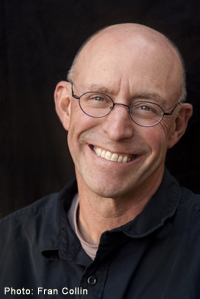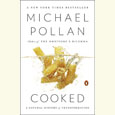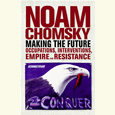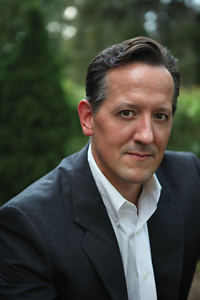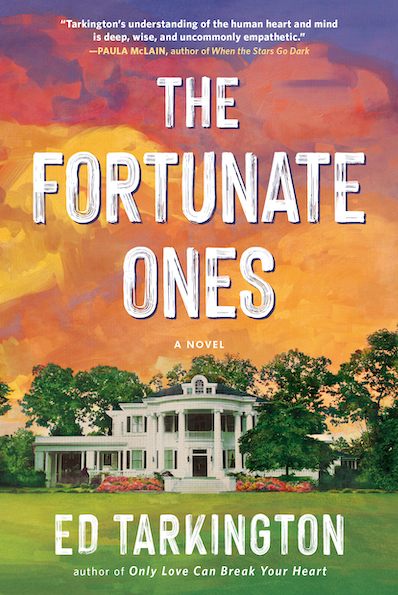Out of Carolina—But Always Of It
Once a working-class kid, always a working-class kid, according to novelist Dorothy Allison—which explains why she works so hard to make each word absolutely right
Dorothy Allison is an unrelenting realist, steeped in the working-class South. She began her career with the short-story collection Trash (1988), published by the feminist and lesbian press Firebrand Books. Her first novel, Bastard out of Carolina (1992), was a finalist for the National Book Award and continues to be widely read and championed today. Since then she has written a book of essays, Skin: Talking about Sex, Class and Literature (1994); a meditation on storytelling, Two or Three Things I Know for Sure (1995); and a second novel, Cavedweller (1998). Each has continued to attract critical success and a large cadre of fans who appreciate her craft and her willingness to write about characters on the margins. Dorothy Allison’s work explores gender, family, violence, and sexual abuse.
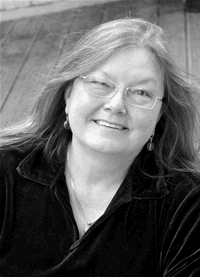 Allison is currently the Mcgee Professor of Writing at Davidson College.
Allison is currently the Mcgee Professor of Writing at Davidson College.
Chapter 16: Much of your work draws on autobiographical elements but is nevertheless classified as fiction. I’m curious about your perspective on memoir: how do you see the two genres as different?
Allison: I think of all writing as storytelling, and I think that good writing has certain things in common. But if you write memoir, you pretty much have to put yourself in a position in time because memoir is the story of what happened as you understand it at the time you’re telling it. I love that and I think we need a great deal of it, because it informs our experience of culture. I just don’t feel that I’m ever quite sure that I know what happens at any moment in time. It varies dramatically in memory and interpretation and in making a good story.
While I was working on Two or Three Things I Know for Sure—which is not really a memoir but a meditation on storytelling that explores a lot of the stories that were told in my family—I figured out pretty early on that my family loves a good story more than the truth. I would go researching the details and discover that they had exaggerated elaborately. or that some things were whole fiction but just sounded so good that my family would repeat them, and then they would become canonized. I suspect that tendency in myself. So I write fiction. I also write fiction because I want to create a certain kind of story. I want to create a certain kind of emotional impact. And I can do that better in fiction.
Now, as to what [fiction and memoir] have in common in terms of craft and language and design? It’s pretty much the same. You have to meet the same level of quality, of texture, of understanding. But if I pick up something and I’m told that it’s a memoir, that it’s true, I need to absolutely trust that narrator. And if the narrator in the course of the work figures out that they have misspoken, I need them to acknowledge that. When I read memoir and find out later that it’s not true, my grasp on reality gets shaken. I think that’s a crime that’s unforgivable.
I was teaching at Emory when one of the big scandals came out, not just the Frey scandal, but [also the one surrounding] the young woman [Margaret B. Jones] who pretended to have been an L.A. gang member and turned out to have been a middle-class child from Oregon. I was trying to talk to young writers about it, and they said, “Well, if it’s a good story, it’s okay,” and I said “No. You can’t conflate all stories. You need to make distinctions between what you believe to be a true story—a memoir—and a fiction you create for an emotional impact.”
I figured out pretty early on that my family loves a good story more than the truth.
Chapter 16: Is it possible that the whole idea of a true story is an innately flawed concept?
Allison: Yes. Someone is always telling a story for a reason. My favorites are probably Mary Karr and Mark Doty, both of whom write a kind of literary memoir that is always set at a particular place and time, and both of whom are famous for acknowledging points where they have written a new account of something they had written about earlier. When Mark Doty was writing about his sister, he said that what he understood in his twenties was not what he understands now, and he tells a completely different version of a story he’s told before. That’s an extraordinary and wonderful thing. But there’s a way in which popular memoir is kind of asocial and ahistorical, and I find that suspect. It makes me feel uneasy in the world.
Chapter 16: I’m wondering if you could talk about the issue of inspiration versus craft in your work. Do you see it as largely dominated by one or the other? What role does each play?
Allison: I begin with inspiration. I sometimes have to recreate inspiration. And craft? I think there are huge categories of people for whom there is just no quarter. And by that I mean that I was born working-class. I was the first person in my family to graduate from high school, the only one to go to college at the time I did it. I am, in American culture, a suspect person, not the kind of person who’s supposed to be a writer. So I’m constantly having to create a sense of legitimacy. The only way I can do that is by being extraordinarily careful. I have to write well to be read at all. And I think that is a salvation. That’s why I’m a slow writer. If I write sloppy, I’m dead, because they’d love to bury me. I think that’s true for any of us who push toward the edge of acceptable categories of “writer.” And that’s always shifting. We’ve even come to a moment when middle-class white boys are having a hard time.
Chapter 16: I know you’re an outspoken feminist and lesbian writer, and I’m curious about the way you might view fiction writing as a political action.
Allison: It’s inherently a political action. Although I think that lots of fiction writers don’t believe that. And there’s a kind of insulation, particularly for literary fiction. We can pretend that it doesn’t have any political impact. But I grew up and became a writer in the early women’s movement. My models for great writers were people like Grace Paley, people who took themselves seriously in the world and saw themselves both as writers and as citizens and held those responsibilities as equally important.
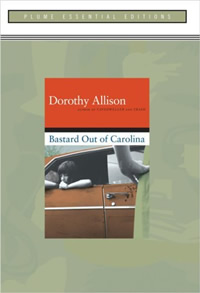 There’s no way I can’t see it that way. But some of it is an accident of birth. I’m one of those fringe people. I’m always going to be noticing my people, my tribe not being allowed to join in the discourse. When I go to universities to do readings, when I talk to students, something invariably happens. No matter if it’s a small crowd or a large crowd, there will be kids in the back, and there will be young people who wait to talk to me until after most of the other people have left. They are young queer writers. They are young scholarship students. They are young Southern kids who want to write but are terrified. And my purpose as a political person is to stand there and be a model for them. There’s not a whole lot I can tell them. I can’t impact them immediately, but my job is to model; my job is to say, “You have a right to your territory.” That’s political.
There’s no way I can’t see it that way. But some of it is an accident of birth. I’m one of those fringe people. I’m always going to be noticing my people, my tribe not being allowed to join in the discourse. When I go to universities to do readings, when I talk to students, something invariably happens. No matter if it’s a small crowd or a large crowd, there will be kids in the back, and there will be young people who wait to talk to me until after most of the other people have left. They are young queer writers. They are young scholarship students. They are young Southern kids who want to write but are terrified. And my purpose as a political person is to stand there and be a model for them. There’s not a whole lot I can tell them. I can’t impact them immediately, but my job is to model; my job is to say, “You have a right to your territory.” That’s political.
It is also the nature of what writers do, no matter what our political background or our position in this country. If you’re a writer, you’re trying to encourage the widest range of voices. You want the untold story. You want the kids in the back of the room to move forward, even if you don’t have a political analysis of how that works or why it’s important.
Chapter 16: Some writers who identify themselves as feminist, lesbian, and so on find those categories a little restrictive.
Allison: Yeah, they can be. You have to resist them. You have to resist sloganeering. And oh, my God, you have to try not to be trite.
Chapter 16: Do you feel a pressure to speak on particular issues and speak on them in a particular way?
Allison: Yes, but it changes all the time. That pressure mostly comes from inside me. But I did a program the other night at a little college here in North Carolina, Gilford College. It’s a Quaker college—wonderful students, just wonderful—socially responsible and engaged and interesting and experimental. But it was an open reading. So in the back of the room I could see there were these older, shaggy, gray-headed ladies who were staring at me suspiciously, some of whom were doctrinaire lesbian feminists who have retired to the Chapel Hill area. They were looking at me like, “Is she going to say anything political or not?” I look at them and I know that there are things they want me to do that are not my purpose for that evening. There’s no way I can genuinely please them, but there’s no way I can avoid acknowledging them. And some of them are still doing fascinating work. They’re semi-retired, irritable. … I like people like that. They make me feel safer in the world, even though they sometimes chew my butt.
Chapter 16: It seems like much of the issue involves feeling comfortable with yourself, so that you know what your vision is as a writer.
My models for great writers were people like Grace Paley, people who took themselves seriously in the world and saw themselves both as writers and as citizens and held those responsibilities as equally important.
Allison: Yeah, you have to be pretty matter-of-fact and realize that some people are going to be pissed off at you. But that’s been true most of my life. I’ve gotten easier with it as I’ve gotten older. Unless I’m having a really bad day. You have bad days in which, even if they love you, you don’t trust them.
Chapter 16: I’m curious about the new novel. It’s called She Who, and anything you can tell us about it would be great.
Allison: Ah, yes. That’s always the hard part, isn’t it? It’s very late. It’s embarrassing to take a decade to write a novel. But I can’t deny it. I started out writing about violence. But I wanted to write about what happens after violence. I wanted to write about what happens in families where people survive violence and are changed utterly by it. And so I wrote about a young college girl. I call her one of the golden children, a young Stanford student who’s about to graduate and go off to New York City, and her mother adores her. She’s political and she’s lesbian and she’s one of these kids I’ve met, these golden children who are so beautiful and so smart and so politically engaged and generous and wonderful, and I adore them, and I’m terrified of them, and I’m jealous of them.
My way of dealing with some of these golden children, kids I work with, some of my students … I have to find a way to love them to teach them, so I put her in a story. And I threw her off the top of a parking garage. I put her in a coma for ten months, and I asked myself the question: would she be as golden if she had to survive the kind of life that my cousins and nieces and nephews survive all the time? They’re not loved, and the world is broken. I started with that and followed it through to the other side. Her mother becomes an anti-violence organizer, driven and pretty much a pain in the ass. Her dad becomes a hermit who doesn’t want to deal with her mother and is only barely managing to engage with the world. It’s a big, complicated novel. I’m so glad I’m about to finish it.
Chapter 16: How big is it?
Allison: Oh, my Lord, I’ve already thrown out several thousand pages. I can already top Michael Chabon for the longest novel ever written. And it stopped for three years. I had to start it over. It changed. I have filing cabinets full of stuff that no one will ever see. You know that thing we were talking about? Craft? I write three pages and throw out two. It’s a really annoying habit.
